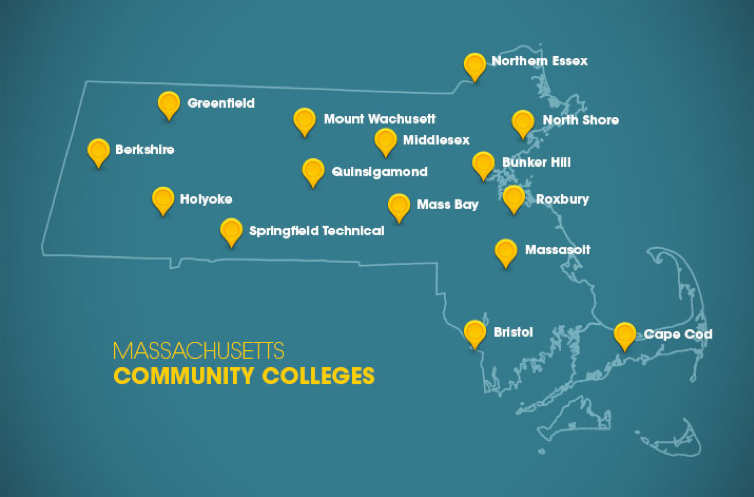One-hundred-and-forty-three days ago, on March 13 (or about two years in “COVID Time”), just as we were all closing down schools and businesses and going into quarantine, I wrote Coronavirus, Community Colleges, and the Equity Gap, explaining how community colleges and our students are different from other sectors of higher education, and why this caused us to take a slower, more deliberate approach to sending everyone home and shifting to “remote” teaching and learning.
I noted that our campuses, for the most part, do not have dormitories and meal plans, but instead, help students on the edge of homelessness find shelter, and offer food pantries.
Our students are older, working while going to school, raising families of their own, commuting, and often struggling to make ends meet. Critically, they may also have limited access to the technology needed for remote learning, like computers and broadband internet access.
For all of these reasons and more, we needed to be thoughtful and more deliberate about how we separated students from their campus support systems.
Despite all the challenges and seeming disadvantages we faced going into the COVID-crisis, now, as colleges and universities across the country are struggling with whether and how to return students and staff to campus again and offer classes and services in the fall, community colleges like NECC offer some tremendous advantages.
Many four-year schools that rely heavily on revenue from dormitories have gone to great lengths to try to bring students back on campus—even if classes are going to be online. Their plans have unfolded slowly. Many are already reversing course, and the rest are likely to change if (or when) local infection rates rise again.
Since a lot of these schools have built their reputations on their face-to-face, residential, “traditional” models of teaching and learning, many are now scrambling to offer “remote” classes—and charging high tuition rates for a very different student experience. Hundreds of lawsuits across the country are already seeking tuition refunds from high-priced universities for spring semesters that did not provide what was promised, and looking ahead to the fall, students and families are balking at repeating that experience all over again.
Meanwhile, community colleges like NECC, which have been offering high quality, affordable online courses and degrees for nearly two decades, are showing how nimble we can be.
Like many commuter colleges across the country, NECC made an early decision to go online—we announced our plans back on May 26—and have spent the summer preparing to make it happen in a meaningful and effective way:
New Online Courses and Faculty Professional Development
In a normal year, just over 20% of NECC’s courses are either online or offered in hybrid format, and between 15-20 new online courses are created.
This summer, NECC is investing $500,000 in CARES Act funding in the creation of new, high quality online courses and faculty development. One-hundred and fifty faculty are working with NECC’s Center for Instructional Technology in a special six-week “iTeach” course to develop over 200 new, online courses.
We’re growing our online presence in areas that have typically been underrepresented such as health careers and STEM fields, and when the coronavirus has been tamed and we resume some kind of new “normal,” we will have more entire degrees available online for students who prefer them.
Student Peer Ambassadors
We are also investing $100,000 in a new Student Peer Ambassador Program that will hire and train students to serve as resources to their peers, using a variety of communication tools to connect them to services like tutors, advisors, the library, information technology, and more.
Laptop Program
To bridge the digital divide and ensure all of our students have the technology they need to succeed, NECC is investing at least $200,000 and implementing a new laptop requirement this fall. All students will be asked to complete a brief survey about their field of study and technology capabilities, and the college will help students in need with financial aid or equipment loans.
The Community College Advantage
Beyond these steps NECC is taking to provide an affordable, high quality online experience this fall, there are some other important advantages community colleges provide all the time.
For potential students, parents, and partners out there still weighing what to do this fall, consider these four reasons to attend your local community college:
- Students who take courses at community colleges increase their chances of earning a bachelor’s degree. Nationwide, less than 60% of people who start a college degree complete it in six years or less. But a new study by the Community College Research Center at Columbia University’s Teachers College reveals that students enrolled at four-year universities who also earned up to ten credits at a community college were 4.5% more likely to finish their bachelor’s degree.
- Less student loan debt—more money in your pocket. This year, the average student loan debt for bachelor’s degree graduates is nearly $33,000. Because the cost of attending a community college is only about a third of the cost of four-year universities, and because of the availability of financial aid like grants and scholarships, most of our students (around 80%) do not take out any loans at all. For those who do, the national average debt for public community college students is around $11,000; and for NECC it is even less—just $8,500.
- Easier transfer of credits. As competition for students has increased in recent years and publicly funded colleges and universities have been pressured by students, families and elected officials to improve transfer processes, community college students are finding it much easier to transfer their credits nearly anywhere they go. Here in Massachusetts, the MassTransfer Agreement guarantees that 34 general education credits will transfer among any of the state’s 28 public undergraduate community colleges, state universities, and University of Massachusetts campuses; and the Commonwealth Commitment will take students even farther, transferring an entire associate’s degree and saving tens of thousands of dollars on the cost of a bachelor’s degree. NECC also has more than 100 transfer agreements with public and private colleges in New England and across the country.
- Everybody’s doing it. Sure, the image most people have of a “traditional” college student is someone around 18-19 years old, living in a dormitory, taking classes full-time, and enjoying campus clubs, athletics, and social life. But the reality is 85% of college students do not live on campus. They commute, or take classes online. They are also working—usually 30 or more hours a week—and sometimes raising families. Community colleges like NECC understand all this, and offer our classes and services in flexible ways to fit the real lives of our students.
The COVID-19 pandemic has disrupted nearly every feature of our lives, and it has certainly changed how prospective college students and their families and supporters are thinking about classes this fall.

Community colleges like NECC offer some tremendous advantages, not only during a crisis, but all the time. There are fifteen community colleges across Massachusetts–one within about half an hour of nearly every resident of the Commonwealth. To find the one closest to you, click the map above, or visit the Massachusetts Association of Community Colleges.
And to learn more about NECC, click here or call us today at (978) 556-3000.






